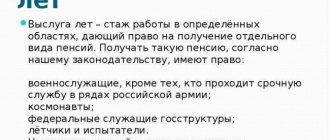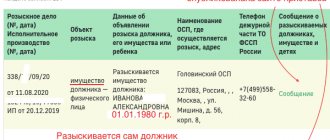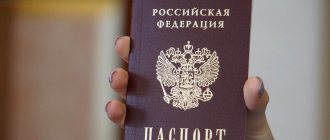Who will get the pension after death?
The legislator has established a special right for the following persons to receive a lost pension:
- family members living together with the pensioner. These include – spouse, children, parents, brothers, sisters, grandchildren, grandparents;
- dependents (regardless of joint residence). We are talking about persons who were supported by the deceased due to age, illness, or other valid reason for incapacity.
These persons must submit claims for the payment due to them within 4 months from the date of opening of the inheritance, otherwise, the lost pension will be included in the inheritance estate and distributed in the general manner.
Inheritance of a state pension not received during the life of a pensioner
Issues of inheriting a pension in the event of the death of a pensioner are provided for by the law of December 17, 2001 (No. 173-FZ), which states that the accrued labor pension due to a person in the current month and remaining uncollected as a result of his death in the specified month is not included in inheritance.
How to receive a lost pension for a deceased person by inheritance and under what circumstances is indicated in paragraph 2 of Art. 9 No. 173-FZ.
Disabled relatives who lived with the testator at the time of his death have the right to receive these funds.
Since 2002, Article 1183 of the Civil Code of the Russian Federation came into force, which provides for the possibility of receiving pension payments by persons who were dependent on a pensioner, regardless of whether they lived together with the deceased or not.
How to receive the lost pension of the deceased?
The unpaid part of the pension is not included in the inheritance estate if persons entitled to receive it timely apply to the pension fund. An appeal is a written application sent to the territorial department of the Pension Fund at the place of residence of the pensioner. The application can be sent remotely, through the State Services website or the personal account of the Pension Fund of the Russian Federation, but you will still have to come to the department to present the original documents.
The pension accrued to the citizen and remaining due to his death is transferred to the applicant’s bank account or issued in cash. The method of receiving funds is indicated in the submitted application.
Who has the right to inherit the deceased's pension?
Inheritance of pension savings is possible at the request of the testator and according to the law (Article 7, Clause 6 No. 424-FZ of the Russian Federation). If during his lifetime the testator has drawn up a written application to the Pension Fund or Non-State Pension Fund, which indicates the legal successors for pension savings, then the money goes to the heirs, regardless of their ability to work and age.
In the absence of an appropriate order for the transfer of accumulated funds, the pension is paid to the heirs in the order of priority established by the current legislation of the Russian Federation:
- children, spouses, parents (first priority);
- brothers, sisters, grandmothers, grandfathers, grandchildren (second stage).
Funds are distributed among persons of the same queue in equal parts.
If an agreement is reached between the claiming relatives, it is possible for one heir to receive the entire amount.
To do this, applicants must refuse to submit an application to the Pension Fund of the Russian Federation.
If maternity capital funds are transferred to the savings account, the inheritance pension after the death of the mother is paid to the father or adoptive parent of her children.
Documents for receiving the pension not received by the deceased
To apply to the Pension Fund for accrual of the remaining pension, you must attach:
- passport;
- birth or marriage certificate to confirm relationship;
- SNILS numbers of the applicant and the deceased;
- death certificate;
- document confirming cohabitation (if necessary);
- documents confirming being a dependent (if necessary);
- Bank account details (for transferring funds due).
This list is not exhaustive; therefore, pension fund specialists may request additional documents. How the inheritance is divided - read the link.
In what cases can you receive a payment?
The payment discussed in the article can be made only if the deceased was a pensioner and had the right to receive pension funds.
It should be noted that in this case we are not talking about receiving the deceased’s pension in its place by a third party on an ongoing basis. The fact is that the death of a pensioner is the basis for deregistering him from the state pension fund and stopping the corresponding transfers.
Payment to relatives for the death of a father or mother is a one-time payment and is made only at the expense of an already accrued but not claimed pension . If the pensioner previously received money for the current month, then third parties can no longer claim payment.
Reference! It is believed that citizens can receive pension payments from their spouse after his death. However, this possibility is not provided for at the legislative level. It should be noted that in some cases they can count on transfers for the loss of a breadwinner.
Application for payment of lost pension
An application for payment of a lost pension is drawn up in simple written form and sent to the territorial body of the Pension Fund of the Russian Federation, which was responsible for calculating the pension of the deceased citizen.
The application must include the following information:
- applicant’s details (last name with initials, SNILS number, place of registration and stay, passport details);
- grounds for receiving the remainder of the deceased’s pension (indication of relationship and cohabitation or being a dependent);
- calculation of the remaining amount;
- method of receiving funds;
- confirmation of the accuracy of the specified information (confirmed by a signature with a transcript, the date of completion is indicated).
USEFUL : read what inheritance cases our inheritance lawyer handles
Features for funded pension
It can be formed not only in Pension Funds, but also in other non-state funds that offer high returns and ease of cooperation. If a person dies before using this pension, it is inherited. When transferring funds, the pensioner can independently leave an order indicating the recipient of the money in the event of his death.
If there is no such statement, then the money remaining in the account is divided among the heirs based on legal requirements. For this purpose, the order of heirs represented by close relatives of the deceased person is taken into account, unless otherwise provided by the will.
How to calculate the lost pension after the death of the recipient?
The accrual of pensions stops in the month following the death of the citizen, therefore, the recipient can count on funds in the amount of the monthly pension amount of the deceased.
The calculation of the remaining part of the pension is carried out by the Pension Fund of Russia, and therefore, contacting the local branch with a request for the remaining amount will be the most convenient and accurate way to find out the remaining amount. In your request, you must indicate and document your right to the lost pension. The Pension Fund's response must indicate the exact amount of the lost pension. Subsequently, this response can be attached to the application for payment of the lost pension.
Persons who have the right to receive an unpaid pension
It has already been noted that the amounts of labor pension accrued in the current month, but not paid by the day of the pensioner’s death, can be received by members of his family who lived with him at the time of his death and who applied for payment within the period established by law. Clause 2 of Art. 9 of Federal Law No. 173-FZ defines the circle of such persons. These include disabled family members of the deceased .
- His children, brothers and sisters, and grandchildren:
- under 18 years of age;
- students enrolled in full-time education in all educational institutions, except additional ones (until their graduation, but not more than until the age of 23);
- over 18 years of age, but before that moment became disabled, limited in their ability to work (at the same time, brothers, sisters and grandchildren are recognized as disabled members of his family if they do not have able-bodied parents).
- One of his parents, his spouse or grandparents, regardless of their age and disability, as well as a brother, sister or child of the deceased who are over 18 years old and who do not work because they are caring for children or brothers under 14 years of age , sisters or grandchildren of the deceased, and have the right to receive a labor pension for the loss of a breadwinner.
- His parents and husband:
- those who have reached retirement age;
- are disabled people with limited ability to work.
- His grandparents:
- those who have reached retirement age;
- who are disabled, limited in their ability to work (in the absence of persons obliged to support them, according to the law).
Example A pensioner lived with two adult children, 47 and 42 years old. After her death on January 10, 2015, they turned to the territorial office of the Pension Fund at their place of residence with a demand to pay them the pension due to their mother for January, which she did not manage to receive. Although the pensioner’s children do not belong to the persons specified in paragraph 2 of Art. 9 of Federal Law No. 173-FZ, they were paid the specified amount of money, guided by clause 1 of Art. 1183 of the Civil Code of the Russian Federation, as members of the deceased’s family who lived with her.
It was also noted that paragraph 1 of Art. 1183 of the Civil Code of the Russian Federation determines the circle of persons who have the right to receive inherited amounts of the unpaid pension of a deceased pensioner. They are family members of such a citizen who lived with him, as well as his disabled dependents, regardless of cohabitation with the deceased.
Another law provides that unpaid pension amounts must be paid to the family members of the deceased pensioner who performed his funeral.
Based on all that has been said, it follows that the Federal Law reduces the circle of persons who are entitled to these payments only to disabled members of the family of the deceased . While the Civil Code of the Russian Federation does not specify the list of these persons, but only limits them to the need to live together with the deceased.
These and other contradictions between the Federal Law, the Civil Code and other laws must be eliminated in the process of their legal application.
Example The niece of a deceased pensioner contacted the pension fund and was organizing his funeral. She had spent a considerable part of her savings and wanted to at least partially return them. The pension fund, having examined the documents she submitted, refused to receive her unpaid pension to the deceased, citing the fact that she did not belong to the persons specified in the Federal Law, nor lived together with her uncle, as required by the Civil Code of the Russian Federation. The Pension Fund did not take into account the provision of the law, which provides for such payments to family members performing the funeral of a relative. Since no one else applied for the unpaid pension of the deceased pensioner within the period established by law, this amount was included in the estate. Therefore, after six months from the date of opening of the inheritance, in the absence of heirs according to the law of the first stage and other, besides her, heirs of the second stage, the niece will be able to receive the unpaid pension of the deceased uncle in the order of inheritance by right of representation.
Heirs, or, as they are also called, legal successors, who have the right to receive the funded part of the labor pension, taken into account in a special part of the individual personal account of the deceased insured person, are divided into two categories - heirs by application and heirs by law.
- The heirs upon application of the specified pension savings are persons who are identified by the deceased during his lifetime and are included in the corresponding application left with the Pension Fund at the place of residence.
- The heirs under the law of the funded part of the pension are the relatives of the deceased person, payments to whom are made regardless of their age and ability to work, in accordance with the order of succession established by the Civil Code of the Russian Federation.
Deadlines for payment of the deceased's lost pension
The lost PFR pension is paid to the applicant within 5 working days from the moment he receives the corresponding request from the citizen. In order to transfer funds, the Russian Pension Fund also requires confirmation from the organization involved in pension delivery that the pension was not actually delivered earlier. In practice, receiving this confirmation often increases the actual period for payment to the recipient.
In the absence of applications to the state body for the transfer of the lost pension, the funds accrued to the deceased are included in the total inheritance mass and will be transferred to the heir after 6 months from the date of opening of the inheritance.
About the terms of provision
The Civil Code of the Russian Federation considers the deadlines when it is necessary to submit an application to the Pension Fund in order to receive the deceased’s pension or other benefits. The above institution should be contacted within four months after the date of death of the testator is recorded. To receive a labor pension, you can submit an application within six rather than four months.
When none of his relatives lived with the deceased pensioner, there were no dependents, and the corresponding application was not submitted to the Pension Fund within the specified period, the funds are transferred to the inheritance fund and will be inherited on a general basis. State bodies carry out this procedure six months from the date of death of the pensioner.
To receive an inheritance, you must act. If you do not promptly apply to the notary's office to enter into inheritance rights and do not receive the corresponding certificate there, you may lose your share of the property. You can restore your rights to it only through the court, and only if there are compelling reasons why the inheritance was not formalized in a timely manner.








